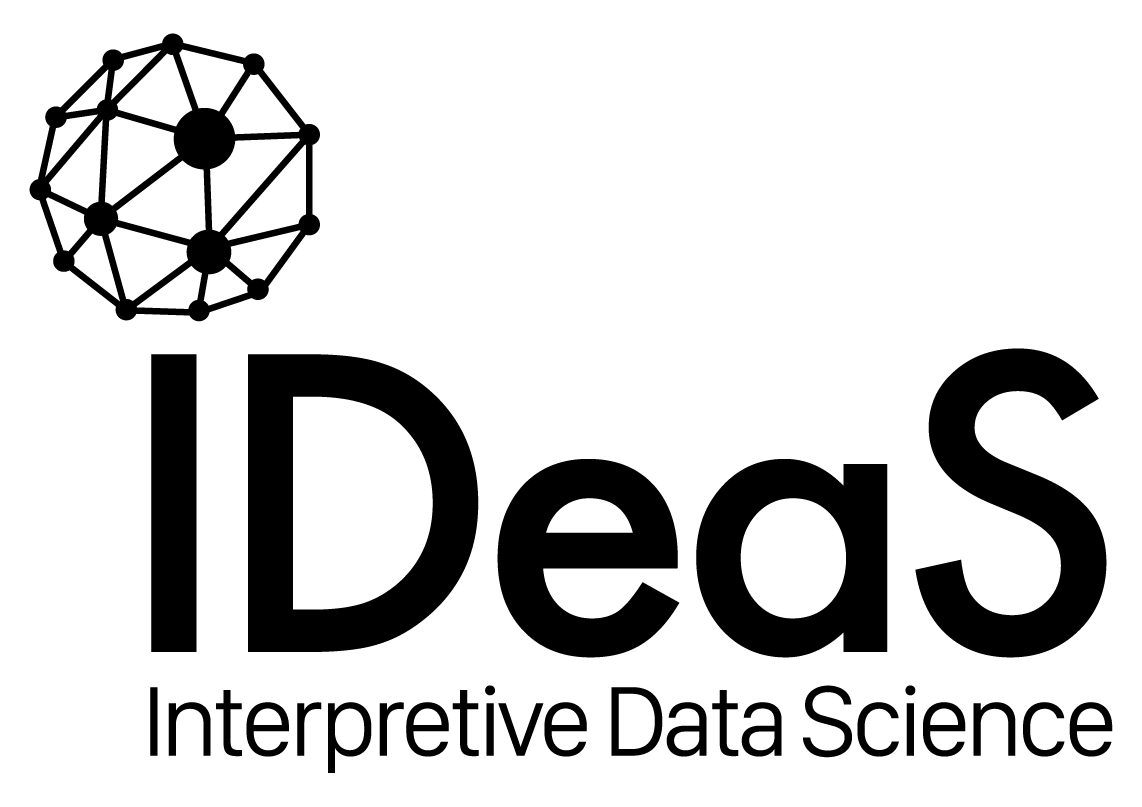
IDeaS 2019 Conference
Held on October 25th-26th, 2019
2019 Program Summary
Title: Interpretive Approaches to Data Science in Management Research
Date: October 25-26th, 2019
Venue: Alberta School of Business, University of Alberta. Room BUS 5-04
Description: The IDEAS group is an emerging working group, coming out of a collaboration between the University of Alberta and University of British Columbia. We were pleased to offer a two-day intensive workshop that provided management doctoral students and faculty members working in the areas of data science, data analysis, Big Data, and artificial intelligence an opportunity to discuss and advance their ongoing research.
Distinctively, this event drew three interrelated topics that are more normally studied in separate scholarly communities:
The reflexive and theoretically informed use of new data analytic techniques in the social sciences that leverage sophisticated algorithms such as topic modeling, natural language processing, and other forms of machine learning.
The everyday work of data analysts in organizations - how they construct knowledge practices, and the epistemic infrastructures of organizations; both as an interesting ethnographic and qualitative topic in its own right, and as a means of encouraging our own reflexivity.
The societal, social, and cultural transformations attending the rise of data and analytics – including changing forms and interpretations of privacy and governmentality – to which social scientists should be able to speak.
Featured Speakers
Joseph Porac, PhD, BS
George Daly Professor of Business Leadership, Leonard N. Stern School of Business, New York University
Joseph Porac studies how social and cognitive processes shape organizational and interorganizational action. Some of his research has addressed the question of how markets stabilize around particular definitions of products such as minivans, motorcycles, and knitwear. Other research has addressed the sociopolitical aspects of corporate governance such as how corporate boards justify C.E.O. compensation to shareholders, whether "star" C.E.O.'s are paid differently than their less reputable peers, and what sorts of firms are most likely to incite activist shareholders to file governance resolutions against them.
Dr. Porac’s most recent work concerns how knowledge is distributed and used across organizations, and has addressed this question with a number of colleagues in an NSF sponsored study on scientific alliances (www.dkrc.org) and in a study on the collective diagnosis of emerging viruses.
Laura K. Nelson, PhD, MA, BA
Assistant Professor of Sociology, College of Social Sciences and Humanities, Northeastern University
Laura Nelson uses computational methods to study social movements, culture, gender, institutions, and the history of feminism. She is particularly interested in developing transparent and reproducible text analysis methods for sociology using open-source tools.
In addition to being an assistant professor of sociology at Northeastern University, Laura Nelson is also core faculty at the NULab for Text, Maps, and Networks, faculty affiliate at the Network Science Institute, member of the executive committee of the Women's, Gender, and Sexuality Studies Program, and member of the editorial board of Sociological Methodology and Signs.
Wendy Espeland, PhD, MS, BS
Professor of Sociology,Department of Sociology, Northwestern University
Professor Wendy Espeland works in the areas of organizations, culture, and law. Her book, The Struggle for Water: Politics, Rationality and Identity in the American Southwest was awarded the Best Book Prize by the Culture Section of the American Sociological Association, the Rachel Carson Award from the Society for the Social Studies of Science, and the Louis Brownlow Book Award from the National Academy of Public Administration.
Dr. Espeland is currently writing a book about the effects of commensuration, the process of translating qualities into quantities. In it she investigates how media rankings have influenced higher education, how efforts to measure homosexuality have shaped gay and lesbian politics, and the commensurative practices necessary in order to transform air pollution into a commodity that is traded on futures markets.
Marc-David L. Seidel, PhD, MBA, MS, BA
RBC Financial Group Professor of Entrepreneurship, Associate Professor, OBHR Division, University of British Columbia
Marc-David L. Seidel’s research interests range across six topics: Distributed trust technologies (such as blockchain), Innovation and Entrepreneurship, Social networks and organizational decision making, Community Form (C-Form) of organization, Early life factors role in later life workplace outcomes, and discrimination and networks in the employment relationship.
Dr. Seidel serves as the Director of the W.Maurice Young Centre for Entrepreneurship & Venture Capital Research. He also holds the role of Associate Editor with the Administrative Science Quarterly.





